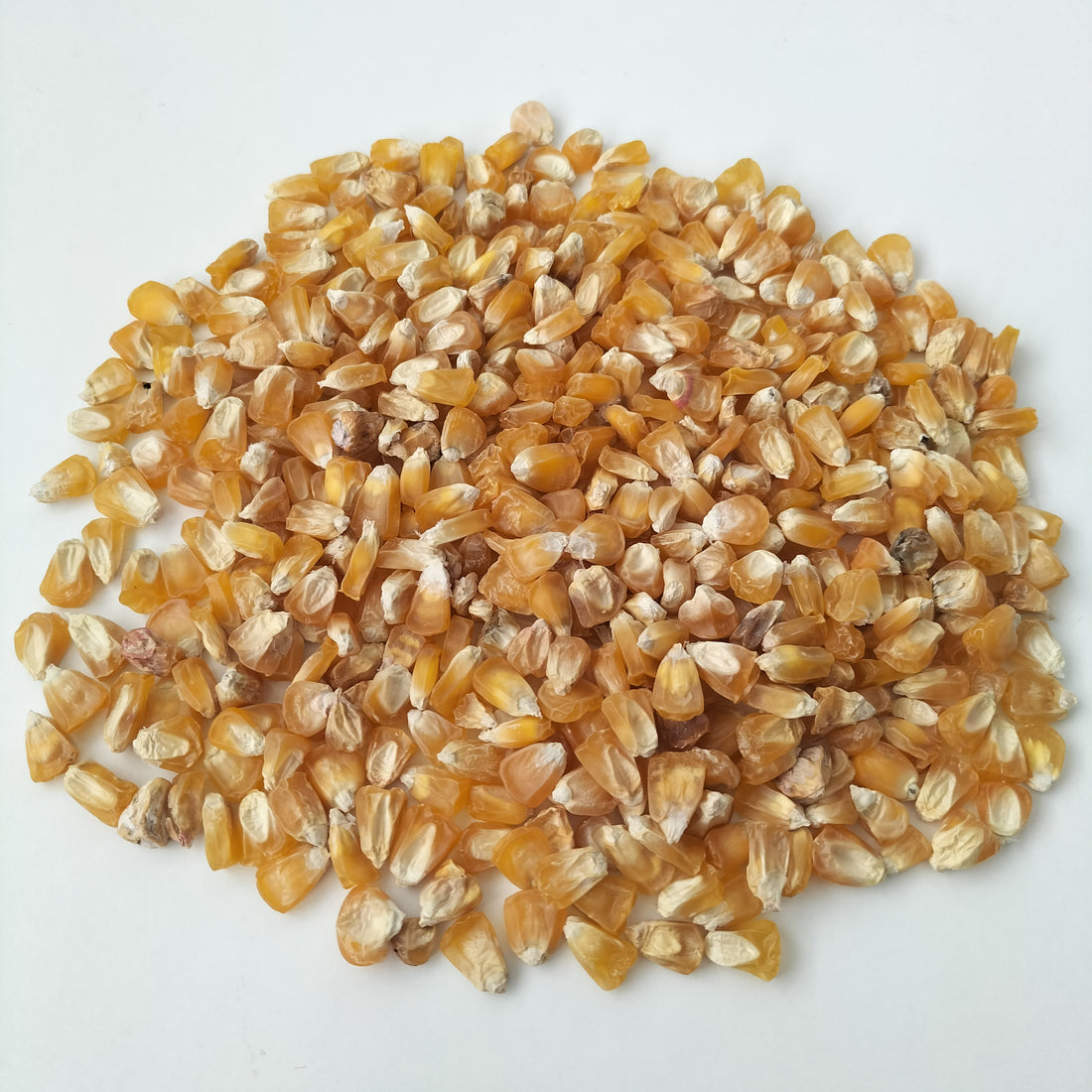Thare can sometimes be confusion with all of the different words that can be put in front of seeds to describe them. Below is an explanation on the different tpyes of vegetable and flower seeds there are.
Open-pollinated (OP) seeds
Open-pollinated seeds are the traditional type of seeds that have been cultivated and saved for generations. They are pollinated by natural means like wind, insects, birds or humans.
The beauty of open-pollinated seeds lies in their genetic diversity, resulting in plants that have stood the test of time. These plants adapt to their environment, and their offspring closely resemble their parent plants.
Seeds from open pollinated plants can be saved and replanted for successive generations while retaining their desired traits.
This is providing the plants are not cross pollinated with different plants from the same family. For example, Broccoli and Brussels Sprouts are both from the same “Brassica” family. If a Broccoli flower happens to be pollinated by the flower of a Brussels Sprout plant, The seeds from that Broccoli plant will produce some variation of the two plants when they are grown. This is what's known as an F1 Hybrid, which will be explained further below.
Heirloom or Heritage Seeds
Heirloom and heritage seeds generally have the same meaning. They are open pollinated seed varieties that have been around for generations. Depending on who you talk to, the variety needs to have been cultivated for at least 50 or 100 years before it can be classed as an heirloom or a heritage variety.
These seed varieties have been saved for generations for their unique traits, and sometimes they come with a story as to how the variety came into being.
F1 Hybrid Seeds
The F1 stands for “first filial generation." An F1 hybrid is the offspring produced from the cross-breeding of two different parent plants. These parent plants are carefully selected for their distinct and desirable traits. They are then manually pollinated by humans in a controlled environment to ensure the genes of both plants combine.
This might not sound too good, but essentially it is mimicking something that could possibly happen in nature. This is unlike genetically modified seed, which will be discussed below.
F1 hybrid vegetable varieties can produce very good results such as resistance to certain diseases, high yields, or vibrant colour. While F1 hybrid flower varieties can be beautiful to look at, and have some ecological value. The value of open pollinated flowers to the environment far outweighs that of hybrid flowers. Open pollinated flower varieties have been around a lot longer and have evolved with the environment around them, making them much more beneficial to pollinators.
The problem with F1 hybrids is that if the seeds are saved from these plants and planted again, the next (F2) generation will not retain the same traits as their parents. Instead, they may revert to having only the traits of one of the parent plants or have other differences that would make them a lot less desirable than the previous F1 generation.
This means that if you want to save the seeds from these plants to replicate the same results in the next growing season, it won’t be possible. F1 hybrid seeds are generally a lot more expensive than open pollinated seeds, due to the research and the amount of time that has gone into developing the variety, and also because of the continual manual pollination.
We prefer to supply open pollinated seeds, as this leaves the grower with full autonomy and control over what they can always grow now, and in the future.
GMO Seeds
Genetically Modified Organisms (GMOs) are developed in laboratories where scientists introduce a gene or genes of an organism into the DNA of another plant. This is done to create plants with specific traits. These traits can include resistance to pests, tolerance to herbicides, improved nutritional content, or longer shelf life. This is most prevalent with agricultural crops.
GMOs have led to a loss in biodiversity. For example, where there were once hundreds or more varieties of crops like corn etc. there are now very few that are grown on scale due to the dominance of GMOs throughout the world.
GMO seeds are generally patented, meaning that it is illegal to save the seeds from GMO plants. This can leave farmers completely reliant on large corporations for their seeds, and open to prosecution if they engage in something as natural as seed saving.
There are more ethical and ecological implications of GMO Seeds but there would run be enough room on the page! Feel free to do some of your own research on the topic.
We believe that nature should never be patented. We do not or ever will sell any GMO seed.
Conclusion
Hopefully this might help to make you aware of the different seed types that are out there if you weren’t familiar with them already. Having an understanding of the various differences between the seed types will hopefully help in aiding you with future decision making when you are buying seeds.
The Difference Between Seed Types

